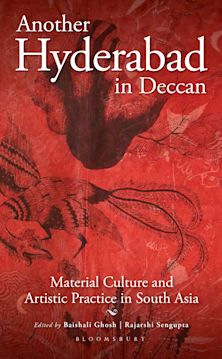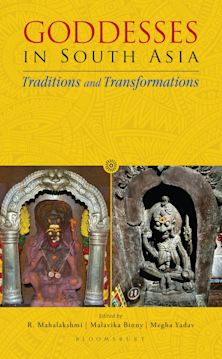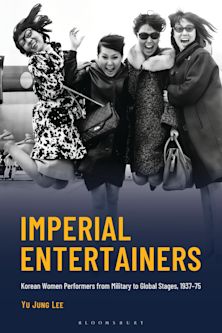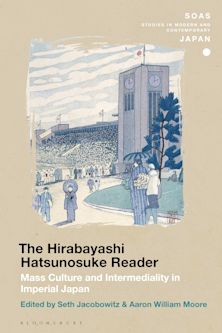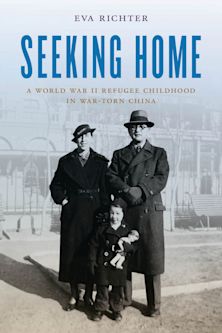- Home
- ACADEMIC
- History
- Asian History
- Hindu, Muslim, & the Dynamics of South Asian Identity
Hindu, Muslim, & the Dynamics of South Asian Identity
Belonging and Conflict from the Past to the Present
Hindu, Muslim, & the Dynamics of South Asian Identity
Belonging and Conflict from the Past to the Present
You must sign in to add this item to your wishlist. Please sign in or create an account
Description
For centuries, many South Asians and Westerners have assumed that an inherent tension between Hindus and Muslims represents a social fact that has long defined the Subcontinent's history. This volume brings together a wealth of contributions that demonstrate how, for many individuals and groups, 'Hindu' and 'Muslim' are, and always have been, more than predetermined markers of religion. Rather, these terms represent sets of contested identities, belongings, communities, ethnicities, histories, regions, neighbourhoods and politics, as well as diverse artistic, literary and music traditions. Arguing that 'religion' does not adequately account for these terms, contributors also recognise that despite this diversity, notions of 'Hindu' and 'Muslim' have long acted as a shared orientation marker of identity and belonging.
Challenging the imaginary of a divided South Asia and historicizing supposed Hindu-Muslim binaries, this book provides a crucial springboard for a broader understanding of these identities as intertwined, interdependent and even co-constructed, making distinction sometimes impossible to discern. Each chapter explores specific case studies of interactions, divergences and convergences between 'Hindu' and 'Muslim' from the eighth century to today, to understand how they have evolved over more than a millennium, and actively reflects upon the theoretical and methodological challenges and constructive approaches necessary to ongoing debates about the complex historical relationship between 'Hindus' and 'Muslims'.
Table of Contents
Part I: Interactions
1. The Matiya Rebellion and Religious Categories in Early Modern Gujarat, Samira Sheikh (Vanderbilt University, USA)
2. Panipat Remembered: Before the Fort of Kalinjar, August 23 1803, William R. Pinch (Wesleyan University, USA)
3. Minority Lessons: Education, Citizenship, and Religion in India, Parna Sengupta (Stanford University, USA)
4. Hindu-Muslim Relations and North India's Oldest Music Festival: The Harballabh Mela of Jalandhar, Radha Kapuria (University of Durham, UK)
Part II: Interweavings
5. Account of a Journey from Vijayanagara to Golconda: On the Convergence of Sanskritic and Persianate Cultures in the Deccan, Philip Wagoner (Wesleyan University, USA)
6. Urdu Literary Culture and a Shared Ethical Tradition in Late-Colonial India, Farina Mir (University of Michigan, USA)
7. Resonant Pasts: Music, Memory, and Communalism in North India, Richard David Williams (SOAS University of London, UK)
Part III: Interpellations
8. The Lamp of Wisdom: Similes and Shared Symbolic Spatiality in Western India, Sara Keller (University of Erfurt, Germany)
9. Marshalling Poets for the Nation: An Experiment in the Two Wings of Pakistan, 1947-1971, Rachel Fell McDermott (Columbia University, USA)
Part VI: Divergences
10. The End of Persianate Hinduism, Carl Ernst (University of North Carolina at Chapel Hill, USA)
11. Cross-Cultural Friendships in a Partitioned Land: A Conversation, Amina Yaqin (University of Exeter, UK)
12. Romance and Religion: Hindu Women, Muslim Men and Recalcitrant Intimacies in Modern India, Charu Gupta (University of Delhi, India)
Product details
| Published | 11 Dec 2025 |
|---|---|
| Format | Ebook (Epub & Mobi) |
| Edition | 1st |
| Extent | 288 |
| ISBN | 9781350569171 |
| Imprint | Bloomsbury Academic India |
| Illustrations | 10 bw illus |
| Series | Critical Perspectives in South Asian History |
| Publisher | Bloomsbury Publishing India Pvt. Ltd |
About the contributors
Reviews
-
Hindu, Muslim is a welcome contribution to a growing body of literature on religious and social identities in South Asia. In prioritizing depth over breadth, the volume offers a robust, refreshing set of viewpoints that add layers of complexity to a subject of interest to all South Asianists.
Audrey Truschke, Professor, Rutgers University-Newark, USA
-
Ranging from the earliest Arab writings on Indian culture to today's “love jihad”-- with chapters embracing politics, musicology, memory studies, literary studies, art history, and much more -- this timely volume explores the myriad and complex ways that peoples of two great religious traditions have responded to each other.
Richard M. Eaton, Professor of History, University of Arizona, USA














